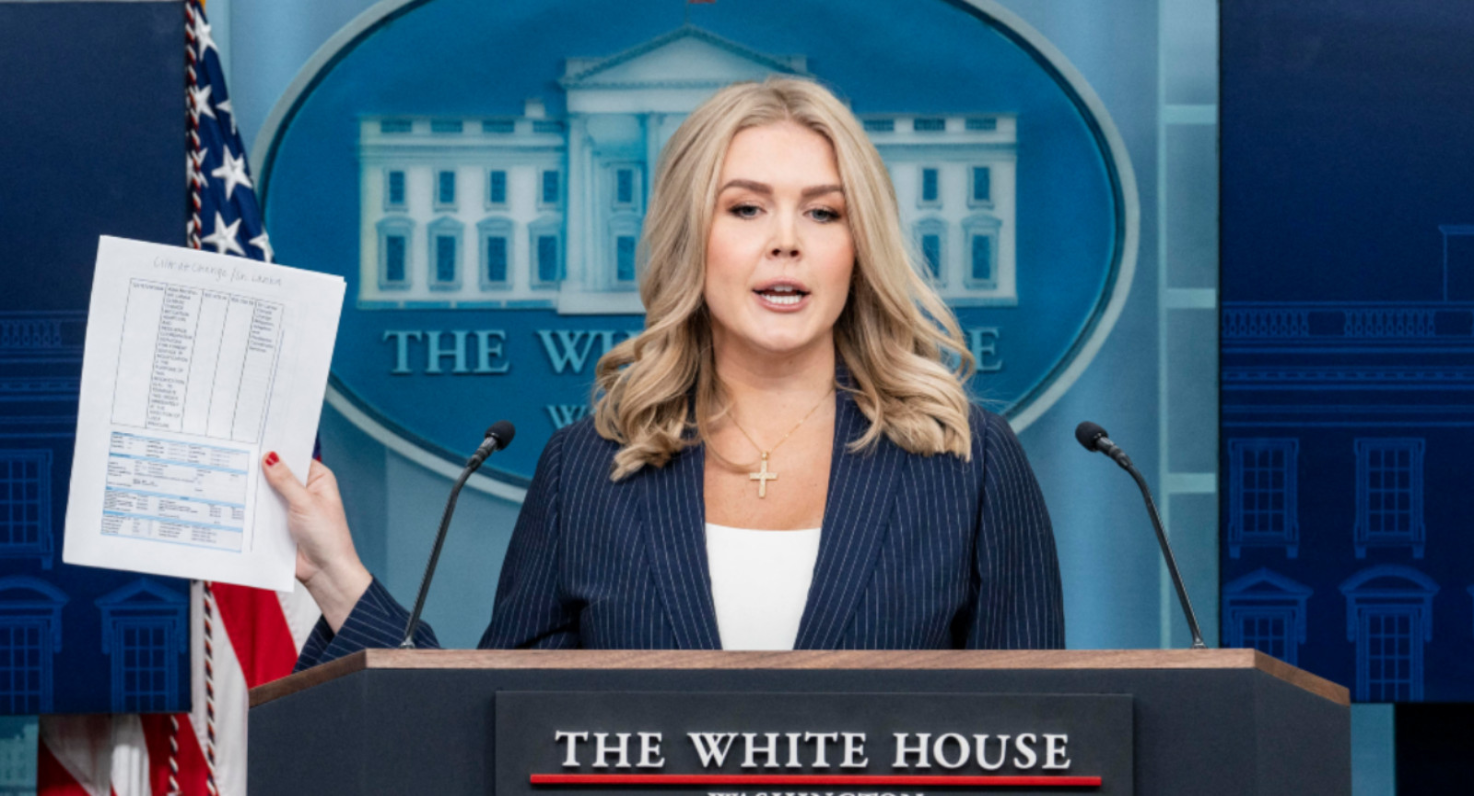Karoline Leavitt Responds Strongly to Judge Boasberg’s Deportation Ruling, Impeachment Threats Follow
In a recent turn of events, White House Press Secretary Karoline Leavitt sharply criticized U.S. District Judge James Boasberg following his decision to halt deportation flights involving suspected Venezuelan gang members. The controversy centers on Boasberg’s ruling, which required that flights transporting these individuals be delayed or redirected pending further judicial review. This decision raised significant concerns within the Trump administration and led some House Republicans to propose impeachment proceedings against the judge..
At the heart of this issue is the ongoing debate over the scope of presidential power, particularly in the area of immigration enforcement, and the role of the judiciary in overseeing executive actions. Since taking office, the Trump administration has emphasized aggressive immigration policies, including deportations of individuals deemed security threats. However, Judge Boasberg’s ruling challenges the extent of that authority, prompting both legal and political ramifications.
The decision in question involved deportation flights aimed at removing members of the Tren de Aragua, a Venezuelan gang identified by the administration as a significant security threat. The judge’s temporary restraining order (TRO) effectively suspended deportations of this group, arguing for further review of the legal justifications behind these actions.
In response to the ruling, Karoline Leavitt delivered a strongly worded statement, accusing Judge Boasberg of overstepping his judicial role. Her remarks reflected a broader frustration within the administration, which views such judicial interventions as an obstruction to necessary national security measures. Leavitt also criticized the judge’s political background, noting his appointment by President Barack Obama and connections to political donations, suggesting potential bias in his decision-making.
The White House’s condemnation of the ruling did not stop at criticism. Republican Representative Brandon Gill of Texas introduced articles of impeachment against Boasberg, accusing him of undermining national security and overstepping his judicial authority. The proposed impeachment highlights a deeper concern about the judiciary’s ability to influence executive decisions, especially regarding immigration enforcement.
The Trump administration has invoked the Alien Enemies Act, a law dating back to the 18th century, to justify deportations in cases involving foreign nationals deemed to pose a security threat. While the law grants broad powers to the executive, its application in this context has raised questions about its relevance to non-state actors, such as criminal gangs, rather than recognized enemy nations. The use of this statute is part of a larger strategy by the administration to tighten immigration enforcement and address perceived national security risks.
This dispute underscores the ongoing tension between the executive and judicial branches of government, specifically regarding the separation of powers. The executive branch, responsible for enforcing laws, and the judiciary, tasked with interpreting them, often find themselves at odds when it comes to policy decisions that impact national security. Judge Boasberg’s ruling serves as a check on the executive’s power, reminding the administration that legal processes and human rights protections must be upheld, even in cases involving national security threats.
The Trump administration and its supporters argue that swift action on deportations is critical to protecting public safety and maintaining the integrity of immigration laws. They view judicial delays, like the one ordered by Boasberg, as detrimental to these goals. However, critics contend that judicial oversight is an essential safeguard against potential abuses of power, ensuring that actions taken by the executive are legally justified and aligned with constitutional principles.
One of the central issues in this case is the role of the judiciary in balancing executive power. The courts have a duty to ensure that the executive branch does not overreach or violate individual rights. In this instance, Judge Boasberg’s ruling reflected a commitment to that role, signaling that decisions involving national security must still adhere to legal standards and undergo thorough scrutiny.
The political consequences of this legal clash are significant. While the impeachment push against Judge Boasberg is unlikely to succeed, it raises important questions about the judiciary’s independence and the potential for partisan influence in judicial proceedings. If such threats become commonplace, it could lead to a situation where judges feel pressured to align their decisions with the preferences of the executive branch, undermining the judiciary’s role as a check on power..
This case also highlights the growing role of immigration enforcement in the national political discourse. With the Trump administration’s focus on tightening immigration controls, issues like deportation policies and the treatment of foreign nationals have become contentious points in the broader political debate. The legal challenges to these policies, such as the one posed by Judge Boasberg’s ruling, are likely to continue shaping the conversation on immigration for years to come.
Ultimately, the standoff between the executive and judiciary over deportation flights raises critical questions about the balance of power in the United States. The outcome of this legal dispute will have lasting implications for the relationship between the White House and the courts, as well as for the broader discussion of immigration policy and national security.
